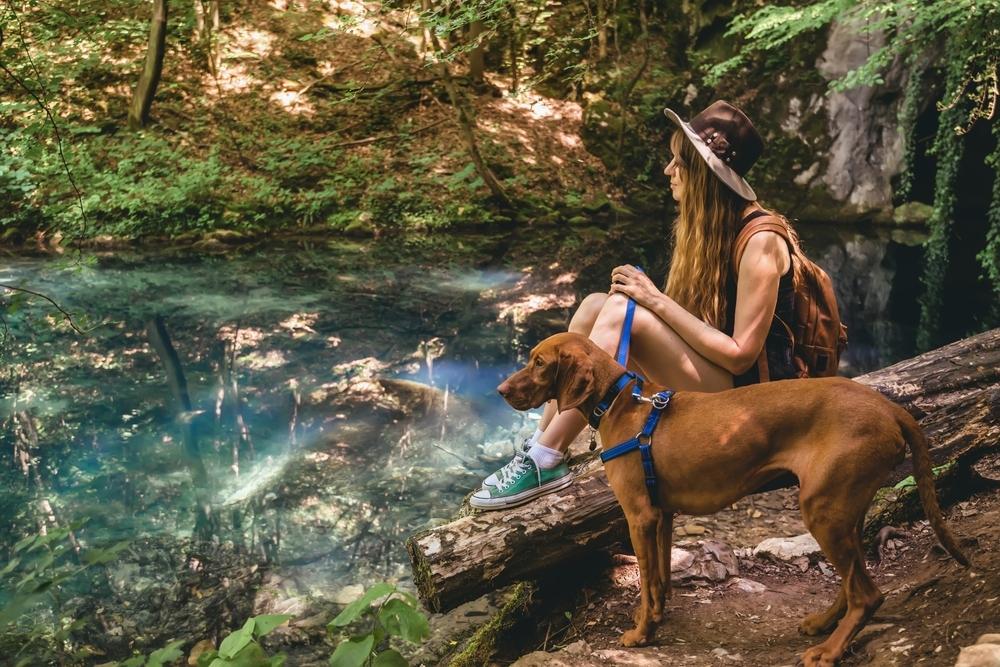
-
Find the right food for your petTake this quiz to see which food may be the best for your furry friend.Find the right food for your petTake this quiz to see which food may be the best for your furry friend.Featured products
 Adult Large Breed Chicken & Barley Recipe Dog Food
Adult Large Breed Chicken & Barley Recipe Dog FoodSupports healthy joints, lean muscle, and beautiful coat for large breed dogs
Shop Now Adult Chicken & Barley Recipe Dog Food
Adult Chicken & Barley Recipe Dog FoodSupports lean muscle and beautiful coat for adult dogs
Shop Now Hill's Science Diet Adult Chicken & Beef Entrée Dog Food
Hill's Science Diet Adult Chicken & Beef Entrée Dog FoodChicken & Beef Entrée in a delicious loaf with complete & balanced nutrition to help keep adult dogs active and healthy
Shop NowFeatured products Adult Turkey & Liver Entrée Cat Food
Adult Turkey & Liver Entrée Cat FoodPrecisely balanced nutrition with the delicious taste of minced turkey & liver to help fuel the energy needs of cats during the prime of their life
Shop Now Senior Vitality Adult 7+ Tuna & Vegetables Stew
Senior Vitality Adult 7+ Tuna & Vegetables StewImproves Everyday Ability to Get Up & Go
Shop Now Adult 7+ Indoor Chicken Recipe Cat Food
Adult 7+ Indoor Chicken Recipe Cat FoodSupports energy level and beautiful fur in mature indoor cats
Shop Now -
Dog
- Dog Tips & Articles
-
Health Category
- Weight
- Food & Environmental Sensitivities
- Urinary
- Digestive
- Joint
- Kidney
-
Life Stage
- Puppy Nutrition
- Adult Nutrition
- Senior Nutrition
Cat- Cat Tips & Articles
-
Health Category
- Weight
- Skin & Food Sensitivities
- Urinary
- Digestive
- Kidney
-
Life Stage
- Kitten Nutrition
- Adult Nutrition
Featured articles How to Properly Mix Wet & Dry Pet Foods
How to Properly Mix Wet & Dry Pet FoodsAn Orange cat eating from a bowl filled with mixed food
Read More The Science Behind Our Love for Pets
The Science Behind Our Love for PetsLearn the scientific reasons why we have such strong connections with our pets, and what science says about the love between humans and our furry friends.
Read More What Is Littermate Syndrome? Pet Adoption Guide
What Is Littermate Syndrome? Pet Adoption GuideLearn more about littermate syndrome in dogs and cats and how to successfully navigate adoption and early socialization processes.
Read More -


Whether it's a sunny backyard picnic or a hike, one of the best parts of having a dog is exploring the great outdoors together. But wait — can dogs get sunburn? While some dogs have a higher risk of sunburn than others, any dog can get one. Sunburns are uncomfortable, and they can increase some pups' risk of developing skin cancer. Fortunately, you can minimize your canine companion's chances of sun damage.
Read on to learn about dog sunburns, including common signs, risk factors, how to treat sunburn on dogs and tips for prevention.
Sunburn is caused by prolonged exposure to the sun's ultraviolet (UV) rays, leading to inflammation that damages the skin. Multiple sunburns can cause skin cancer in predisposed dogs. The areas of skin most likely to get sunburned include the nose, tips of the ears and belly.

Types of Sunburn
Sunburns are categorized by skin damage severity. Contact a veterinarian if you have any concerns about your dog's sunburn, no matter how mild or severe it may seem.
First-Degree
First-degree sunburns damage the skin's outer layer (epidermis). They usually heal on their own within a few days without treatment.
Second-Degree
Second-degree sunburns damage the skin's outer and middle layers (dermis). Second-degree sunburns may cause blisters and introduce infection risk. They can take weeks to heal and require veterinary treatment.
Third-Degree
Third-degree sunburns are rare and require emergency care. These burns severely damage all layers of the skin and destroy nerves. Third-degree burns are usually caused by fires or chemical burns, not sun exposure, and can take months to heal.
The signs of sunburn in dogs are typically consistent across all breeds and ages. With a mild sunburn, you might notice your pup's skin is slightly pinker or redder than normal.
When to Take Your Dog to the Vet
Take your dog to a veterinarian for immediate treatment if you notice any of these signs:
Dark red or purple skin
Swollen or leathery skin
Crusting or peeling
Blisters
White discoloration inside the burn area
Oozing skin or skin that appears wet
Fever
Shivers
Lethargy
Loss of appetite
Signs of heatstroke
The signs of sunburn in dogs can mimic several other skin diseases, including infections, autoimmune disorders and skin cancer. Consult your veterinarian about any abnormal skin conditions, including sunburn, to rule out other causes and minimize your pup's discomfort.
These factors can increase dogs' odds of sun damage:
Pink skin
Hairless or short-haired breeds
Hairless noses and ears
Extended exposure to sunlight during the day
Shaved or closely trimmed hair
Medications that increase sun sensitivity
Examples of short-haired breeds include Dalmatians, greyhounds, vizslas, and Weimaraners .


Tasty Tips

A sunburn isn't always a veterinary emergency. Mild sunburns that result in pink skin typically don't need treatment and will heal on their own within a few days. If your dog tolerates it, you can apply a cool compress to the affected area to help them feel more comfortable. Never use ice packs. You can also give your dog a bath with cool water and soothing oatmeal shampoo.
Veterinary Treatment
Anything more severe than a mild sunburn requires your vet's attention. Sunburns are considered emergencies if your dog's skin oozes, blisters or turns dark red or purple. Pups who aren't eating or drinking, show signs ofdehydration or appear to be in pain also need prompt care.
Sunburn treatment depends on the burn's severity and your dog's signs. It can include:
Antibiotics for skin infection
Medicated cream or lotion
Petroleum jelly
Fluids for dehydration
Pain medication
Skin grafts (for severe burns)
If your dog has blisters or peeling skin, leave them alone. Picking at the skin can disrupt healing and lead to infection.
The best way to deal with sunburns is to prevent them in the first place. You can take several steps to prevent sunburns, including:
Limit sun exposure — especially if your dog is predisposed to sunburns — between 10 a.m. and 4 p.m.
Put a T-shirt on your dog when they go outside.
Apply a vet-approved dog sunscreen to sunburn-prone areas of skin. Reapply every 90 minutes.
Have your dog's skin checked by a veterinarian once a year.
So, can dogs get sunburn? Yes! And now you know how to spot the signs of sunburn and prevent them from occurring in the first place. Armed with this information, you and your dog can safely enjoy summer and all the wonderful adventures the outdoors has to offer!


Dr. Sarah Wooten graduated from UC Davis School of Veterinary Medicine in 2002. A member of the American Society of Veterinary Journalists, Dr. Wooten divides her professional time between small animal practice in Greeley, Colorado, public speaking on associate issues, leadership, and client communication, and writing. She enjoys camping with her family, skiing, SCUBA, and participating in triathlons.
Related products

Supports healthy joints, lean muscle, and beautiful coat for large breed dogs

Supports lean muscle and beautiful coat for adult dogs

Chicken & Beef Entrée in a delicious loaf with complete & balanced nutrition to help keep adult dogs active and healthy

Chicken & Barley Entrée in a delicious loaf with great taste and precisely balanced nutrition to support 5 essential building blocks for lifelong health
Related articles

Wondering where can I buy a dog? Consider adoption and explore the pros and cons of adopting a dog from a breeder versus an animal shelter.

Learn how to help keep your dog's immune system in tip-top shape, including nutritional immune system support for dogs and other strategies.

Your dog's coat and skin are a big part of your dog's overall health. Ensure you keep your dog's coat healthy, by following these simple tips.

Discover how the field of dog science is giving us more and more insights into the inner workings of our furry best friends.

Put your dog on a diet without them knowing
Our low calorie formula helps you control your dog's weight. It's packed with high-quality protein for building lean muscles, and made with purposeful ingredients for a flavorful, nutritious meal. Clinically proven antioxidants, Vitamin C+E, help promote a healthy immune system.
Put your dog on a diet without them knowing
Our low calorie formula helps you control your dog's weight. It's packed with high-quality protein for building lean muscles, and made with purposeful ingredients for a flavorful, nutritious meal. Clinically proven antioxidants, Vitamin C+E, help promote a healthy immune system.

